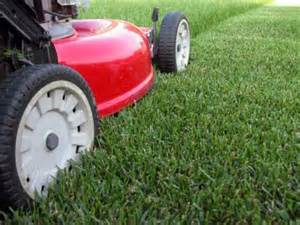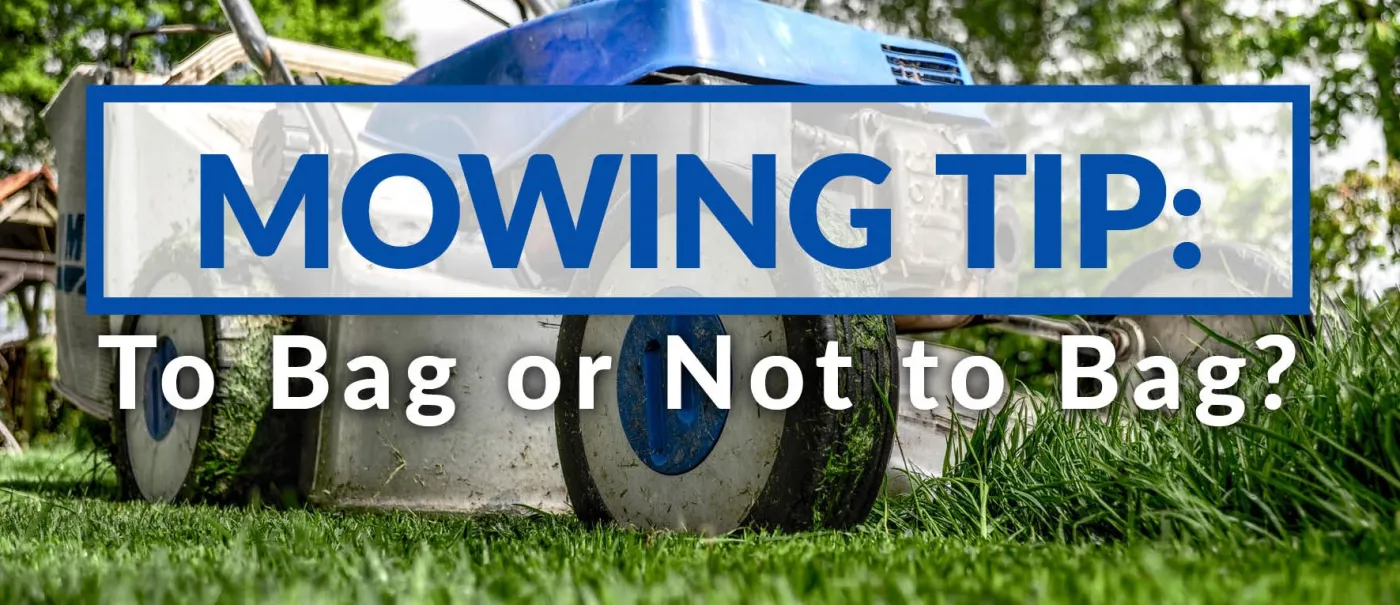A question I hear frequently is “Should I bag my grass clippings or let them lay (mulching) on my lawn?” Certainly, there are some areas of the country nation that turfgrasses are healthier when bagged, but luckily for us Gainesville, Florida is not one of those areas. I do not recommend removing your grass clippings if you have a healthy, regularly maintained lawn, however there are exceptions…

Lawn with piles of clippings left in big clumps — (not good!)
Let’s talk about when and why you should bag grass clippings up off the lawn. Bagging is beneficial if your lawnt is extremely wet and the clippings clump up and make little mini piles. This will cause your lawn to turn brown in those areas due to the grass not getting enough sun and air flow, which left unattended, could promote lawn disease, such as leaf spot or large patch fungus.
Also, bagging is beneficial if your lawn has grown really tall and has not been regularly maintained. The grass, even if when dry, could leave a layer clippings covering the lawn and cause browning in a more wide spread area and again promoting disease. (Something to think of if your lawn was allowed to get really tall!) As a rule, never remove more than 1/3 of the leaf bladeof St.Augustine or Zoysia grass. That means you may have to cut it once a week during the growing season to keep from cutting less than 1/3rd off every mow.
Last but not least, another reason to bag or rake up the clippings is if the lawn has a disease/fungus- and specifically only the areas affected. Bag the clippings and throw them away as not to spread the disease. If the disease is really bad do not mow, and have your lawn sprayed with a fungicide beforehand. Now onto the benefits of not bagging, or mulching your grass clippings.
The Benefits of Leaving your Grass Clippings

Finely chopped and mulched clippings are good for the lawn
The benefits of leaving the clippings on your grass are many. Grass clippings are full of nutrients and can add up to 15% of your lawn’s fertilizer needs, such as nitrogen, phosphorus, potassium and many other micronutrients that are very beneficial and needed by your lawn to grow. Also grass clippings are made up of 70 to 80 percent of water (moisture) that decompose quickly thus actually cutting down on the total water you will need to add to your lawn.
Contrary to popular belief the clippings do not add to thatch build up. Thatch is defined as intermingled layer of dead and living shoots, stems, and roots that develops between the green grass and the soil surface. This layer will make your grass soft and spongy and cause serious problems in your lawn. By leaving (recycling) the clippings in your lawn you are putting valuable organic nutrients back into your lawn thus cutting down on the total fertilizer we would have to use on your lawn. This helps the environment tremendously by saving water and room in our landfills. Also all the nutrients in the grass clippings can hurt the environment if they are blown into our drains which lead right back to the ocean. Remember all those nutrients the clipping provide to your lawn are great but the ocean does not need them. This is thought to cause algae blooms that hurt our oceans and water way eco systems - especially as close as we are to major springs.

Use a mower with a mulching blade for best results
In summary, leaving well mulched grass clippings in the yard is good for our oceans, our landfills, and our lawns. So leave your grass clippings on your lawn where they actually help. Keep them out of the landfills and water sources. If you have any questions concerning this subject or any of my postings feel free to contact our office or myself. We will be glad to help in anyway with your lawn or landscaping needs. Our phone number is 378-LAWN or email us at info@themasterslawncare.com
Rusty Thompson has been in the green industry since for over 20 years, and has owned The Master's Lawn Care for over 12. In this role, he supervises field personnel and ensures all operations proceed in a safe and effective manner. He writes regularly on best practices for maintaining a healthy vibrant lawn in Gainesville, Florida


